Are you thinking about a career in the culinary arts after your time in the military? No matter where in the world you may be deployed or living as a veteran, you, your spouse, or your children may be able to get the culinary training you want from a highly regarded culinary institution.
This article can help you understand how you may be able to pay for culinary school with the GI Bill® and other grants. We’ll cover a variety of financing options available to qualifying active military, veterans, and their spouses and children. In addition, there are several special grants for qualifying military and their dependents that are available directly from Auguste Escoffier School of Culinary Arts.
Find out how these programs can put higher education within reach for those who’ve served and their families!
What Is the GI Bill®?
The GI Bill® originated as a series of benefits enacted by Congress and President Franklin D. Roosevelt to help returning World War II veterans in the 1940s. It included financial aid like low-cost mortgages, unemployment compensation, and education expenses.
While the original bill expired in 1956, there have been subsequent versions and benefit expansions in later years. Today, there are a number of GI Bill® programs to help veterans and members of the military to pursue higher education, which we’ll explain below.
Can You Use Your GI Bill® While On Active Duty?
Depending on your personal circumstances and the type of GI Bill® benefit you use, you may be able to use your funding during active duty.
The Post-9/11 GI Bill®, for example, may be used on active duty as long as you have served for at least 90 days. But it’s important to note that benefits generally increase the longer you serve. Once you’ve served at least 36 months, you may be eligible for 100% of your funding. Some students choose to attend school online during their military service, so they can get their education while still on base.
Keep in mind that if you choose to use this while on Active Duty, you may not receive your Monthly Housing Allowance.
How to Use the GI Bill® For College
To access your benefits, you’ll first need to apply! We recommend that you apply online for your GI Bill® benefits for culinary school. This route is generally faster and more efficient than filling out paperwork and mailing it in. You’ll need the following to complete the application process:
- Your Social Security number
- Your bank account direct deposit information
- You or your parent’s/spouse’s education and military history
- Basic information about the school or training facility you want to attend or are attending now
If you’re still on active duty, you might have an education services office on your base or ship. Ask them to help you set up an online account, and then reach out to Veterans Affairs (VA) to learn more about your potential benefits.
Consider your options carefully. In most circumstances, you can only use one type of education benefit for a period of service.
Make sure to apply early! The application can take over a month to be reviewed, accepted, and funded, so be sure to get moving as soon as you’ve decided on your college or vocational school. You don’t want any roadblocks to getting your next career started. Not all schools accept the GI Bill®, but you can compare possible benefits at different schools using the VA’s GI Bill® Comparison Tool.
You’ll also need to start your application to the school you wish to attend. We recommend that you contact an Admissions representative to have them walk you through Escoffier’s application process.
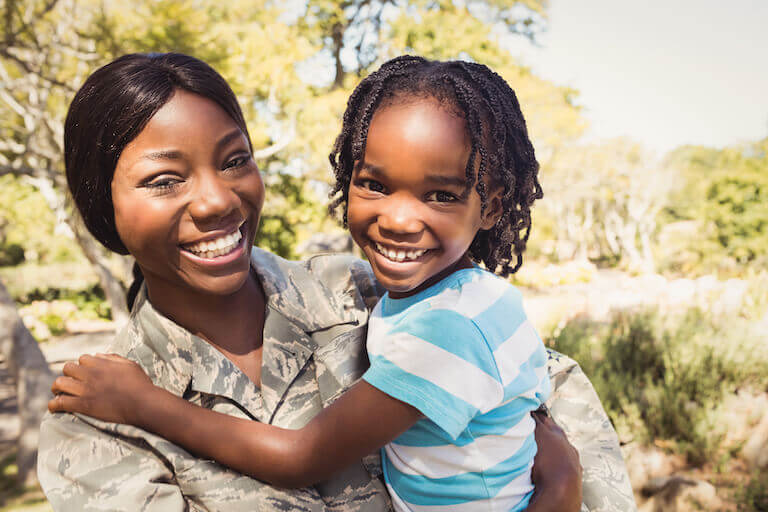
Veterans and active-duty military may be able to fund higher education through the GI Bill®
The Most Common GI Bills® Used to Pay for Culinary School
The following GI Bills® may be used for training at Escoffier, whether you wish to attend our Austin or Boulder campus programs or a distance learning program. Keep in mind that each fund has its own eligibility requirements, and not all veterans/service members will be eligible for all programs. Be sure to check with Veterans Affairs to clarify your funding eligibility.
Montgomery GI Bill® Active Duty (MGIB-AD) – Chapter 30
For students who fit into certain categories, the MGIB-AD may provide a monthly education benefit. These funds go straight to your bank account, and you can then pay your tuition, housing, and school supply expenses yourself.
While there are four categories of qualification, today most students who use the MGIB-AD meet the following criteria:
- They were honorably discharged;
- They have a high school diploma, GED, or 12 hours of college credit;
- They first entered active duty after June 30, 1985;
- They had their military pay reduced by $100 per month for the first 12 months of service;
- They served continuously for at least two to four years.
Check the complete Montgomery GI Bill® Active Duty eligibility requirements for additional categories and complete qualification rules.
How Much Aid Could I Get Through MGIB-AD?
Effective October 1, 2022 through September 30, 2023, students may receive up to the following amounts (depending on how many courses they’re taking, length of service, and additional factors):
- $2,210 per month for full-time enrollment
- $1,657.50 per month for ¾-time enrollment
- $1,105 per month for ½-time enrollment.
If you’re waiting on MGIB-AD funds, contact Escoffier’s Financial Aid Office. We need to know if there’s a delay in receiving your award that prevents you from paying your tuition on time.
Post-9/11 GI Bill® – Chapter 33
The Post-9/11 GI Bill® shares many of the same benefits as the Montgomery Bill and is an accepted use of the GI Bill® for culinary school. The Post-9/11 GI Bill® may be a better option for students completing a full-time four-year degree, as it may offer more overall assistance.
To be eligible for this benefit, you must have met at least one of the following criteria:
- You served at least 90 days on active duty on or after September 11, 2001, or
- You received a Purple Heart on or after September 11, 2001, and were honorably discharged, or
- You served for at least 30 continuous days on or after September 11, 2001, and were honorably discharged with a service-connected disability, or
- You’re a dependent child using benefits transferred by a qualifying Veteran or service member
Unlike the Montgomery GI Bill Grant, the funds from the Post-9/11 GI Bill go directly to the school, which many students find more convenient. It’s also transferable within your family, which is another benefit active members and veterans appreciate. If you are looking to transfer benefits to a spouse or child (aged 18-26), you’ll need to request a transfer through the Department of Defense’s milConnect portal.
How Much Aid Could I Get Through The Post-9/11 GI Bill®?
This fund may entitle you to 36 months of post-secondary education. This means this bill could cover an entire bachelor’s degree (nine months of education for four years). Or it could be used for degrees or diplomas at a vocational school like Escoffier.
Here are some of the maximum program benefits that you may be eligible for:
- In-state tuition for public colleges and universities
- Up to $26,381.37 at private colleges and universities
- Up to $26,381.37 for non-degree granting programs
- A monthly housing allowance (currently averaging $1,833 per month)
- Up to $1,000 per year for books and supplies
- Up to $500 for relocating from a highly rural area
The Yellow Ribbon Program
The Yellow Ribbon Program is a benefit within the Post-9/11 GI Bill® bill that may give students expanded access to tuition funds. This program is only for those who qualify for full benefits through the Post-9/11 GI Bill®, and who:
- Served at least three years on active duty and were honorably discharged; or
- Received a Purple Heart after September 11, 2001, and were honorably discharged; or
- Served at least 30 consecutive days and discharged for a service-related disability.
There are additional possible qualifications, so make sure to check with the VA for all requirements!
Escoffier offers the Yellow Ribbon Program to students who apply and qualify, but not all schools do. Be sure to check with the VA office to see if the Yellow Ribbon Program can supplement your GI Bill® funding, especially if you decide to attend our campus in Austin or Boulder.
When Can I Use GI Bill® Benefits?
The timeline for GI Bill® benefits varies depending on your dates of service.
If you left the military before January 1, 2013, you have to use your Post-9/11 GI Bill® within 15 years of your last 90-day period of active duty service.
But if you left the military after January 1, 2013, there is no time limit to when you can use your GI benefits, thanks to the 2017 Forever GI Bill®.
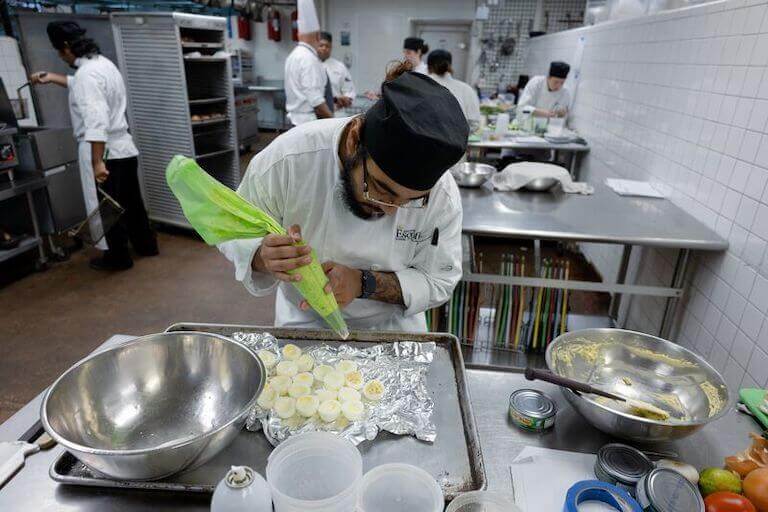
Escoffier is a school that accepts the GI Bill® and actively supports veterans.
Survivors’ and Dependents’ Educational Assistance (DEA) – Chapter 35
The Survivors’ and Dependents’ Educational Assistance (DEA) program is dedicated to veterans who survived circumstances such as capture or a permanently debilitating injury. It may also be used by children (ages 18-26) of a service member who died on active duty, or a surviving spouse. If you’re faced with having to leave military service, or you are a spouse re-entering the workforce, this funding option can help get you on the right track.
How Much Aid Could I Get Through DEA?
This program may pay the following benefits (effective October 1, 2022 – September 30, 2023) for degree-granting or vocational education:
- $1,401 per month of full-time enrollment
- $1,107 per month of ¾ time enrollment
- $812 per month of ½ time enrollment
The Fry Scholarship is another source of funding for children or spouses of veterans who lost their lives in the line of duty or from a service-related disability after September 11, 2001. For private education or non-college degree programs, this scholarship will pay up to $26,381.37 (effective August 1, 2022 – July 31, 2023). There may also be funding available for a housing allowance, books and supplies, and additional costs. Consult with Veterans Affairs to establish whether you’re entitled to this benefit.
If you qualify for both the DEA program and Fry Scholarship, you may only use one at a time. The benefits of both programs combined cap out at 81 months.
“I worked with Jordan in the Financial Aid Department, who helped me get some of the scholarships I qualify for because my dad is a disabled veteran. Jordan does a ton of paperwork and extra work for me to get things submitted for this application, which needs to be updated every four months.”*
Kadie Sardo, Escoffier Boulder Culinary Arts Graduate
Military Spouse Career Advancement Account (MyCAA)
The MyCAA program provides scholarships to spouses of active service members. Spouses may be eligible for up to $4,000 in scholarship funds, with a $2,000 cap per year. To qualify, you must apply while your spouse is an active member of the military, National Guard, Coast Guard, or reserves within certain pay grades.
Grants from Auguste Escoffier School of Culinary Arts
Escoffier offers grants to qualifying service members, their spouses, and their dependents. Note that these grants cannot be used in conjunction with any other institutional grant and/or scholarship. So be sure to clarify whether these will suit your overall financial needs. And talk to one of our Financial Aid representatives to explore your eligibility!
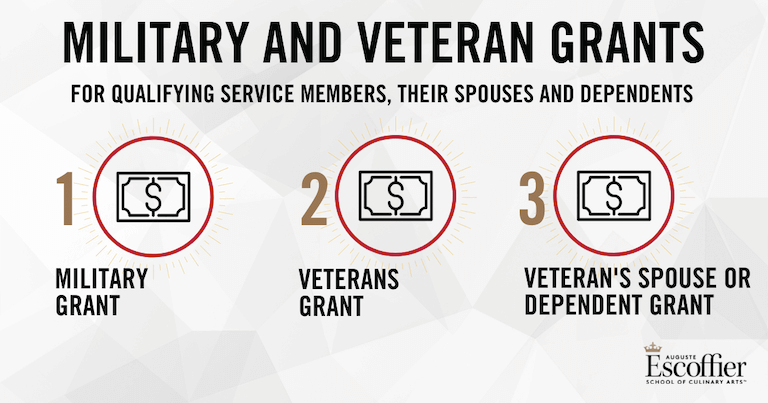
Military Grant
Students who are on active duty may qualify for a $1,000 grant towards tuition and educational expenses. This includes active duty, Drilling National Guard, and Drilling Reservist service members. Students must complete the application process, validate their military status, and have an outstanding financial need to be considered.
Veterans Grant
Escoffier is also pleased to provide a $1,000 grant to select honorably discharged veterans of the U.S. Military in order to make their culinary education more affordable. Students must complete the application process, validate their military status, and have an outstanding financial need to be considered.
Veterans Spouse or Dependent Grant
There are opportunities for spouses and/or dependents of honorably discharged veterans of the U.S. Military to get financial aid through this $500 grant. Please talk with Escoffier’s Financial Aid staff to find out whether this grant applies to your family’s circumstances.
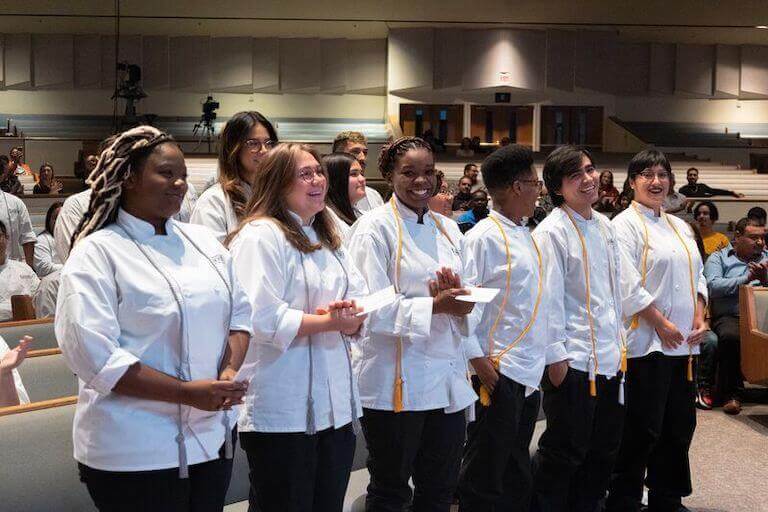
Military spouses can pursue higher education while their partner is serving.
Why Do Military Veterans Make Such Great Chefs?
It’s true: for many reasons, those who have served in the military can also serve up excellent food.
The military attracts a very special kind of individual: they’re adventurous, but they like routines. They’re independent thinkers, but they also understand the value of teamwork. They’re not afraid to lead, but they also know the importance of following a leader. They’re willing to take calculated risks in order to succeed. They like to serve others…and they love a good challenge.
But it’s the structure of professional kitchens themselves that gives people with a military background a distinct advantage over their peers. The “kitchen brigade” system, known as the brigade de cuisine and used by top professional kitchens everywhere, was created by our school’s namesake, Auguste Escoffier—who was a soldier himself.
Meet Some of Escoffier’s Veteran Graduates
Escoffier is proud to help veterans get the education they may need for their next act. Meet a few of these impressive Escoffier graduates!
Brigade de Cuisine: A Familiar Concept for Veterans
Auguste Escoffier’s brigade de cuisine involves a high level of discipline, structure and respect.
At the top of the brigade, you have your executive chef—the general of the kitchen. They call the shots. To help implement their vision, they have a second-in-command in the sous chef. This person may oversee the rest of the chefs in the kitchen, create schedules, and do much of the hands-on management. Next, there are the station chefs like garde manger, patissier, and saucier. And below them are the line cooks—the ones who do most of the cooking. This top-down system creates a clear chain of command and streamlines communication.
Our veteran students and alumni often excel under the brigade rules and routines. That’s because the uniform, system of communication, assignment of duties, and chain of command were all adopted by Escoffier from his military experience for greater efficiency, speed, and teamwork in the kitchen.
“I harp on getting more veterans to the kitchen—it’s a good world for us. That structure definitely helps fill that void, the loss [of leaving the military].”*
Lance McWhorter, Army and Navy Veteran; Escoffier Online Graduate; Executive Chef/Owner, Culture ETX and The Plaid Rabbit Social Club & Speakeasy at Culture ETX; Food Network’s “Chopped” Contestant
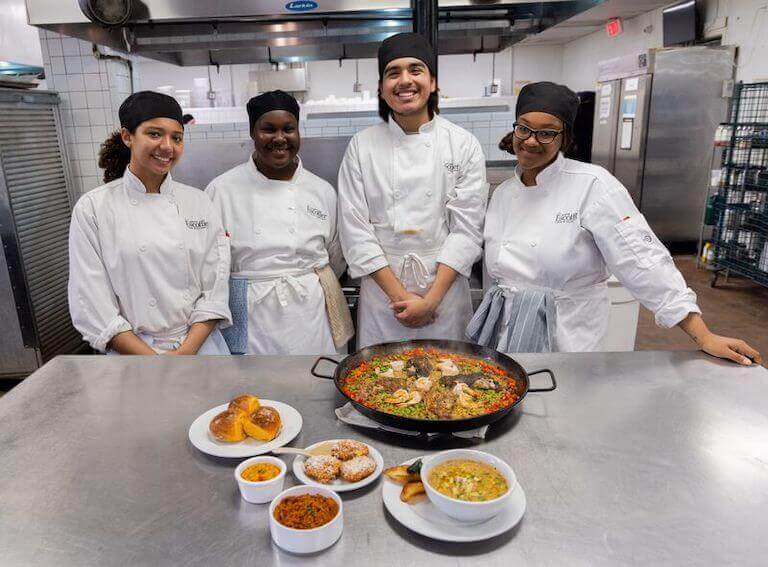
Trading one uniform and routine for another may help veterans to adjust to civilian life.
The Escoffier Experience for Veterans and Active-Duty Military
Escoffier is proud to be a recognized Military Friendly® School for the fourth year in a row. Military Friendly Schools® demonstrate best practices from the Department of Defense and Veterans Affairs, as well as meeting laws and regulations surrounding the GI Bills®. Escoffier has received particularly high ratings in the Financial Aid & Assistance and Military Student Support & Retention categories.
Army veteran Lance McWhorter is a graduate of Escoffier’s online culinary program. He enrolled after his service and time as a security contractor. And he’s a vocal proponent of Escoffier’s online education.
“I’m pretty notorious for jumping on Escoffier threads and getting into it,”* he says. “It’s definitely a program that I believe in, and it’s one that I recommend as long as [the students] have realistic expectations. History, terminology, calculating COGS, profit margins, profit/loss, product waste—there’s so much more to learn than just cooking. I’m already winning contests and built my own restaurant. I kind of fast-tracked myself. And I really feel like Escoffier was a huge part of that.”*
Veteran Lance McWhorter on his Escoffier experience.*
With flexible online programs, both veterans and active-duty military can fit their education into their schedules, whether they’re back at home or on a base halfway around the world!
Where Do I Start?
If you’ve served in the military, you likely know what it takes to work hard…and work smart. The GI Bill® can offer some incredible benefits to help you get going on your next career. And that career just might start with a degree or diploma from Auguste Escoffier School of Culinary Arts.
If you’re still enlisted, get started by talking to the education services office on your base or visiting the Veterans Affairs website for information. And contact us for more information on our programs. We’re here to help you embark on your new career path, no matter where that path might take you.
Related articles you might find useful:
- How Long Does It Take to Pay Back Student Loan Debt…And Is It Worth It?
- FAFSA® for Culinary School: A Step-By-Step Guide
- The Essential Guide to Culinary School Scholarships
This article was originally published on April 27, 2020, and has since been updated.
*Information may not reflect every student’s experience. Results and outcomes may be based on several factors, such as geographical region or previous experience.

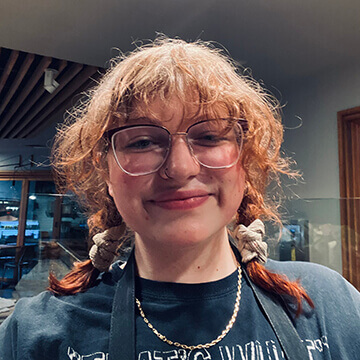 “I worked with Jordan in the Financial Aid Department, who helped me get some of the scholarships I qualify for because my dad is a disabled veteran. Jordan does a ton of paperwork and extra work for me to get things submitted for this application, which needs to be updated every four months.”*
“I worked with Jordan in the Financial Aid Department, who helped me get some of the scholarships I qualify for because my dad is a disabled veteran. Jordan does a ton of paperwork and extra work for me to get things submitted for this application, which needs to be updated every four months.”*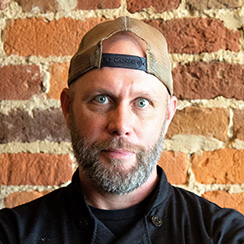 “I harp on getting more veterans to the kitchen—it’s a good world for us. That structure definitely helps fill that void, the loss [of leaving the military].”*
“I harp on getting more veterans to the kitchen—it’s a good world for us. That structure definitely helps fill that void, the loss [of leaving the military].”*

